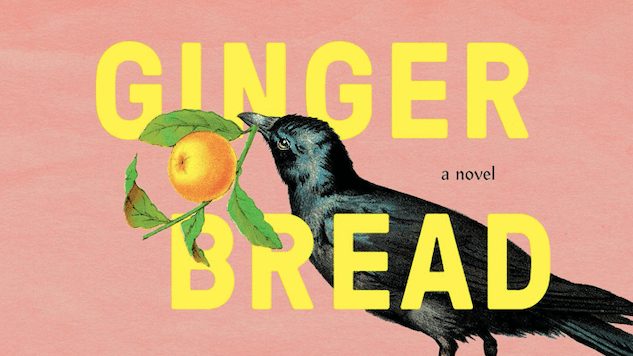A Family Recipe Sparks Fantastical Drama in Helen Oyeyemi’s Gingerbread
Books Features helen oyeyemi
For 14 years, Helen Oyeyemi’s imaginative vision and compelling prose have cemented her unparalleled voice in literature. Oyeyemi’s latest novel, Gingerbread, proves that her writing still remains an unpredictable delight, whisking readers through a fantastical tale with contemporary relevance.
Gingerbread follows Harriet Lee, a single mother living in London with her daughter, Perdita. Harriet’s world is brimming with tension, including strife with her mother, Margot, but the one constant in her life is a family gingerbread recipe. The recipe is so delicious that she uses it to make friends—some of whom become reliant on her for a gingerbread fix.
 But Perdita has celiac disease and cannot eat the gingerbread despite her love for it. After lying about a school trip to go on a mysterious journey, she returns home, prepares a single gingerbread cookie for herself and becomes so violently ill that she goes into a coma. When Perdita wakes up and is well enough to return home, Harriet tells her the story of leaving Harriet’s childhood home of Druhástrana, which translates from Czech as “the other side” and is considered a fictional island to the rest of the world.
But Perdita has celiac disease and cannot eat the gingerbread despite her love for it. After lying about a school trip to go on a mysterious journey, she returns home, prepares a single gingerbread cookie for herself and becomes so violently ill that she goes into a coma. When Perdita wakes up and is well enough to return home, Harriet tells her the story of leaving Harriet’s childhood home of Druhástrana, which translates from Czech as “the other side” and is considered a fictional island to the rest of the world.
It’s with this fairy tale-like story that Oyeyemi blurs the lines between reality and fantasy. Harriet’s voice is at times incredulous about the saga she’s telling, as if commenting on events she can hardly believe herself. But the unifying element among the rapid changes of setting, characters and narrative direction is gingerbread and its power to transform Harriet’s life.
The recipe was developed to use blighted wheat in a such a delicious way that, should the wheat kill the snacker, they wouldn’t be entirely sad about it. If Gingerbread has a moral in the sense of a traditional fairy tale, it might be wrapped up in the fact that a treat could be a harmless snack or a dangerous poison—and that the eater will never know until it’s too late.
For all the otherworldly turns, however, there are traces of a fascinating immigration narrative that engages with timely issues. Druhástrana is cut off from the world, which has completely forgotten about it, due to a Great Referendum that severed all international relations. Harriet and Margot’s lives were upended when they became involved in an exploitative capitalist scheme to turn a profit on a beloved family recipe, forcing them to flee to the U.K. Once there, Margot worked multiple jobs—some paid under the table—to cobble together a “Minimum Frankenwage” to make ends meet. These echoes of a recognizable world keep the novel tethered—however loosely—to firmer ground.
Gingerbread’s more fantastical elements don’t quite obscure Harriet’s grim history, but rather package it in a way that avoids emotional highs and lows. Instead of delivering a harrowing tale of struggle and danger, Harriet’s saga becomes a bizarre story laced with haunting moments that mirror contemporary concerns.
Where Oyeyemi’s previous novels that riff on fairy tales can be linked to a genre archetype, Gingerbread reads more like multiple fairy tales wrapped up in one. Oyeyemi avoids clean endings and lessons, opting to launch her central characters in a new direction instead. Even the final pages hint at yet another beginning as strange as those that came before. It doesn’t quite make sense unless you’re willing to meet the book where it is—in a surreal, chaotic world where the real and the imagined overlap.
Bridey Heing is a freelance writer based in Washington, DC. More of her work can be found here.